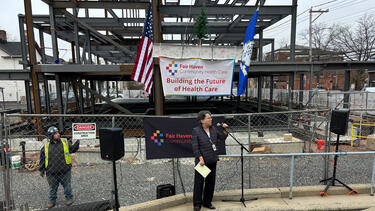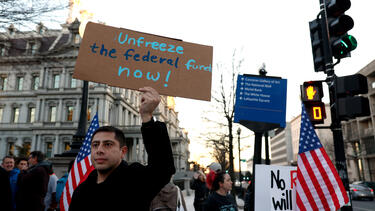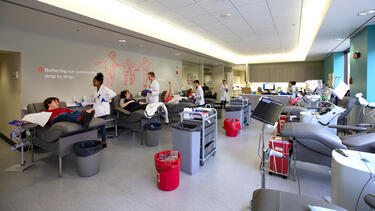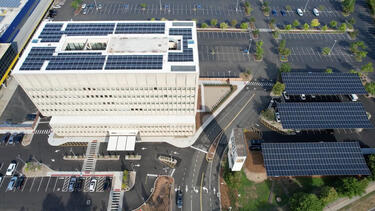Alumni
How Tariffs Could Empty Grocery Shelves
Sanitube’s sanitary steel products are an essential link in the supply chain that gets milk, cheese, and other foods to your kitchen table. Todd Adams ’10, the company’s president, says that the tariff turbulence buffeting his operations could end with escalating prices and even shortages of nutritional staples.

Can a Clinic Comply with Trump’s Executive Orders Without Leaving Patients Behind?
For more than 50 years, New Haven’s Fair Haven Community Health Care has provided care to immigrants and other vulnerable populations. We talked with CEO Suzanne Lagarde ’14 about how the organization is grappling with federal executive orders and budget cuts that threaten its mission.

The Funding Crisis Facing Nonprofits
We talked to Andrea Levere ’83 and Alexandra Sing ’20, CEO and COO of Capitalize Good, about the state of the social sector and the increased urgency of their work working with funders and nonprofits to move toward a model of stable, long-term capital.

Why Do Museums Matter?
Daniel Weiss ’85, former president and CEO of the Metropolitan Museum of Art, discusses the distinctive joys and challenges of leading mission-driven organizations.

Finding Returns with a Demographic Lens on Commercial Real Estate
Dave Liu ’08, managing director at the investment management firm Harrison Street, says that investing in buildings that meet people’s needs in each phase of life provides resilience during economic downturns.

Making Impact Investing Work for System Resilience—and Investor Profits
To confront interconnected environmental and social crises, impact investors will need to factor resilience-building into their expected returns, especially in the most vulnerable parts of the world.

How a Network of Nonprofits and a Habit of Generosity Powers the U.S. Blood Supply
Curt Bailey ’99, CEO of Bloodworks Northwest, explains how the generosity of blood donors enables a uniquely American model for managing a crucial corner of healthcare.

Talking about Child Sexual Abuse Can Help End Child Sexual Abuse
Child sexual abuse is preventable, according to Joan Tabachnick ’86, if families and communities actively engage in uncomfortable conversations.

Streaming Seeks a Path to Profitability
Only Netflix and Disney turn a profit from streaming. Media analyst Michael Nathanson ’90 says that streamers are turning to bundles, ads, and password crackdowns to survive the disruption and consolidation hitting the industry.

To Make Greener Buildings, Try Innovating around the Edges
The building industry is slow to change. But three Yale alumni are finding ways to make changes on the margins and in the process offer solutions that aren’t easy to ignore.

How to Build a Space Station
Nanoracks, co-founded by Chris Cummins ’89, started as a niche startup that facilitated research on the International Space Station. Now it’s building a space station.
